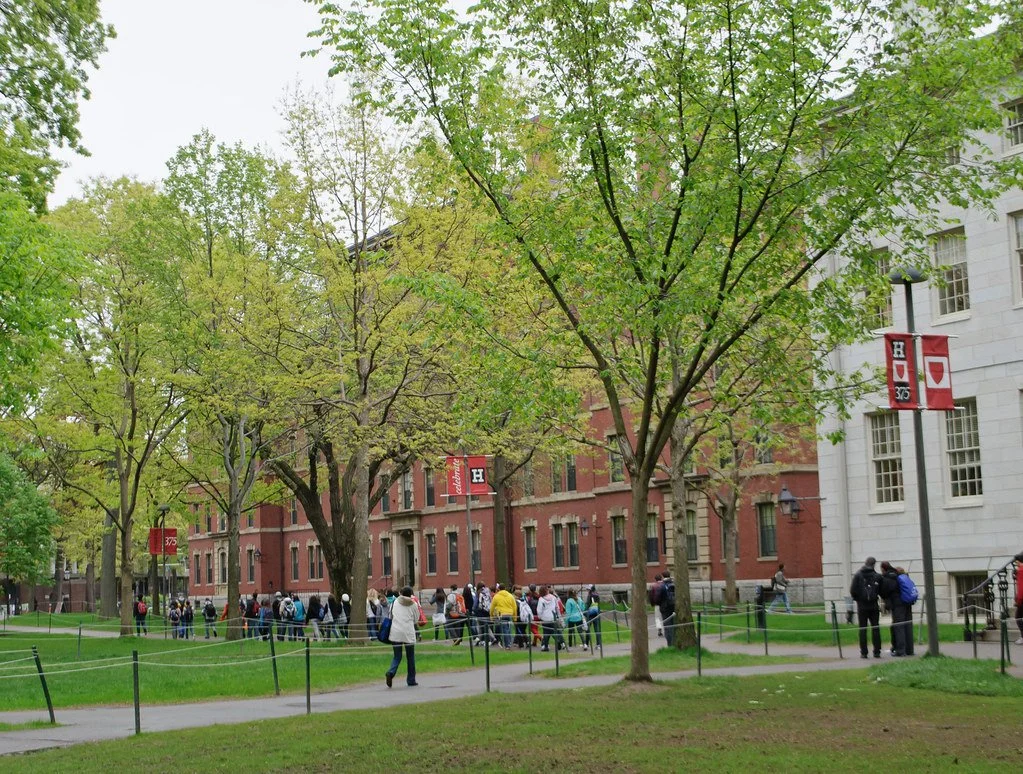One Sunday when I was 11, my brother prepared and presented a list of grievances about me at a family meeting, including not liking how I laughed, or that I would punch him whenever he walked by in the hall. My parents gently explained that we couldn’t ask to change my laugh, but we could request a cessation of punching. I guess you could say I grew up in a conflict-healthy family.
When I got to high school - a pluralistic Jewish high school in Boston - I was most drawn to those conversations in which my friends and I disagreed about an aspect of our religion. I cherished those late-night, tough conversations, and going into college, I looked forward to expanding these conversations outside of my own faith, and disagreeing curiously with those of all backgrounds.
How it all began. A message from our founder, Shira Hoffer
My freshman fall, a professor wrote on the blackboard, “How to Dismantle the University System.” Confused, I raised my hand to ask why we were dismantling it in the first place. I was met with silence and stares. At the end of class, I asked why my question was met with that response. “We don’t ask questions like that in this class,” she replied. Confused, I never asked a question in that class again.
So much for that rigorous engagement with challenging ideas. But the moment inspired my next four years of study into speech, controversy, and conflict resolution, a qualification as a volunteer small claims court mediator, a spot on the Intellectual Vitality Committee, and an honors thesis about how religious and secular college students approach difficult conversations differently.
In the aftermath of Hamas’s October 7th attack on Israel, I, then a junior, experienced first-hand the dialogue challenges I had been studying on campus, and started a national project called the Hotline for Israel/Palestine. HIP was a texting hotline dedicated to responding to inquiries about the region — not with definitive answers, but with resources from multiple perspectives to empower the user to develop an informed position. We received international press attention, and hundreds of users, but I realized that, while it positively impacts those with questions, the larger problem is that many people do not believe they have questions at all. At the same time, a teacher texted the Hotline asking if we ever run workshops.
This conclusion/question combination led to the creation of The Viewpoints Project (formerly the Institute for Multipartisan Education), a student-led 501(c)(3) empowering young people to approach disagreement with curiosity, whatever the topic. We conducted a landscape analysis in the summer of 2024, discovering gaps around student leadership, buy-in, sustainability, and tailoring, and built our programming to address these needs. Our middle and high school consulting — led by near-peers of the students we support — is designed in close collaboration with our clients, working with students, teachers, or a combination, in programming ranging from a day to eight months. Our collegiate Viewpoints Fellowship infused campus organizations with a culture of curious disagreement as a tool to achieve existing goals, cultivating engagement skills in those who would never have signed up for a dialogue workshop in the first place. And our custom offerings are just that — we want to help whomever we can, however will be most helpful.
At Viewpoints, we envision impassioned and constructive disagreement, in dynamic campus discussions, where curiosity and open-mindedness thrive, and all participants are treated with dignity. Join us in bringing this vision alive.
Why Disagree Curiously?
We believe curiosity is more than a mindset — it’s a powerful tool for navigating disagreement and driving change. When we lean into tough conversations with openness instead of defensiveness, we create space for connection, understanding, and even joy. Research backs this up. Read below to explore some studies that have inspired and informed our work — and discover how curiosity can transform conflict into meaningful dialogue.
“Higher curiosity was also associated with a more positive affective state, namely enjoyment, and was inversely related to a negative affective state, frustration.”
“Even when their teachers prefer to avoid addressing conflictual issues, students…describe the rare occasions when conflicts are discussed as their most meaningful classroom experiences.”
“Subjects higher in curiosity exhibited a higher degree of willingness to examine surprising information contrary to their political predispositions.”
Study 3
“Through the give and take of conflict, people shed their illusions and assumptions of each other and can come to know and understand their opponents’ actual positions and needs.”
Study 4
“Students who…have had significant opportunities in school to participate in thoughtful discussion of conflictual social issues in open, inclusive classroom climates tend to exhibit democratically relevant understandings, skills and dispositions.”
Study 5
“Behavioral results from two studies revealed that states of high curiosity enhance not only learning of interesting information, but also learning of incidental material.”
Study 6
“Dialogue and debate among contrasting and conflicting views sharpens understanding of one’s own position, fosters learning from other perspectives, and promotes the humble recognition that competing orientations have many advantages of their own.”
Study 7
“A too-often neglected element of conflict dialogue is preparation—developing norms and relationships for respectful nonviolent interaction.”
Study 8




